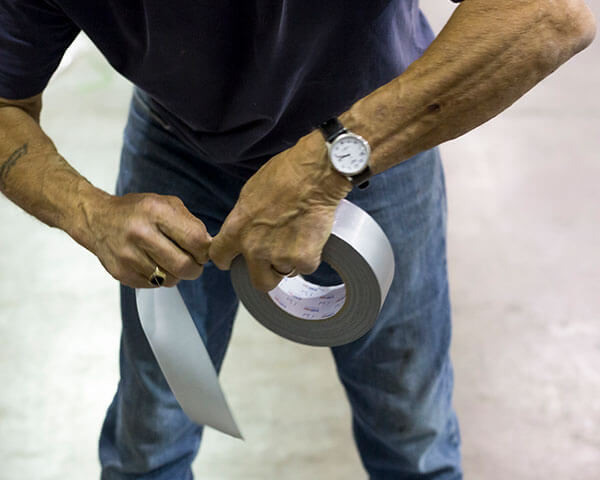Those conditions apply to most tapes especially wet and heat.
The [Complete] Technical Guide to Duct Tape | ECHOtape
Duct tape is one of the most popular and versatile forms of tape. Learn how duct tape works, when it fails, common types and more in this guide.echotape.com
1. Heat
Despite its name, regular off-the-shelf duct tape is not a good choice for sealing or repairing heating and ventilation ducts. The heat softens the adhesive, causes it to lose its strength and slip from the attachment. It also carries no safety certification, which means it may burn and produce toxic smoke. (For that reason duct tape is not allowed at all on ducts in states such as California.)
As an alternative, consider All Purpose Aluminum Foil Tape, which works up to 248° F and is flame-retardant
2. Water
Duct tape is water resistant, not waterproof. It will work in a pinch until a more permanent solution can be applied, but over time the adhesion will peel away when completely submerged in water.
Consider All Leak Repair Tape instead; a permanent adhesive that forms a watertight seal and works in both extreme heat and cold.
3. Temporary Repairs
Think twice about using duct tape for temporary uses such as sealing a windowpane or hanging plastic sheeting. In certain situations, it makes an excellent stopgap until a more permanent solution can be applied. But this type of adhesive will leave behind a sticky residue when removed.
A better option would be All Purpose Repair Tape, which maintains a strong grip while removing cleanly from any surface
4. Uneven Surfaces
Standard duct tape has a thin layer of adhesive so it adheres best to smooth, even surfaces. Applying it to rough or irregular surfaces means the tape will only make contact with the high points thereby lessening the strength of its bond.
Consider Outdoor Stucco Duct Tape; a thicker layer of adhesive means it’s able to connect with more surface area and maintain a stronger hold.
5. Cold
If you’re working in cold conditions, repairing vinyl siding or refrigeration hoses, duct tape is not the answer. Extreme cold hardens the adhesive and diminishes sticking power of existing duct tape. And if you are applying the tape under cold conditions, it may not stick at all.
We have a number of cold-weather solutions, but All Weather Repair Tape lasts in temperatures as low as -30°F!
6. UV Light
Over time exposure to sunlight will cause duct tape’s adhesive to dry out and become brittle or delaminate. For outdoor projects that require tape, it’s best to choose one that’s been treated to resist the effects of ultraviolet light, like Premium Grade Stucco Duct Tape.
Duct tape is good on plastic ducting. It was made for it.

